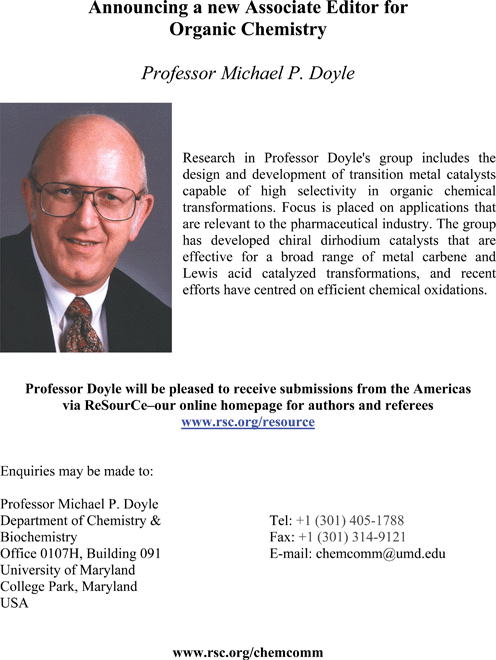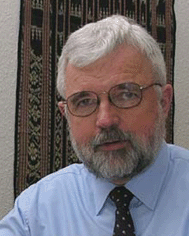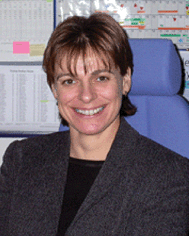ChemComm gets set for another high impact year
Abstract
Welcome to the first issue of ChemComm for 2008. In this Editorial we take a glimpse at the exciting year ahead and welcome Professor Peter Kündig as the new Chair of the ChemComm Editorial Board.
Introduction
2007 proved to be another successful year for ChemComm. The impact factor increased once again and we continued to be the fastest publisher of a vibrant blend of high quality general chemistry research. With rapid publication times, an impact factor of 4.52 and high visibility, ChemComm really does remain the perfect choice for work that commands universal respect.Editorial Board changes
2007 marked the end of Professor Roeland Nolte's highly successful term as Chairman of the ChemComm Editorial Board. We extend our enormous gratitude to Professor Nolte for his dedication and guidance in developing the journal over the last four years. During his term we have seen the transition to weekly publication, the introduction of the new easily readable three-page format, the launch of the new-look website, ChemComm's 40th anniversary celebrations, including a series of lectures and specially commissioned anniversary articles, and a substantial increase in ChemComm's impact factor to its current value of 4.52, reflecting the high standard of published research. We are extremely grateful to Roeland for his support of the Editorial Board, the Editorial Advisory Board and the ChemComm Editorial Team.We also thank retiring Board members Professor Alois Fürstner and Professor Shankar Balasubramanian for all their hard work during their terms of office.
In addition, we are extremely grateful to Professor Andy Evans for his valuable work as the Associate Editor for Organic Chemistry over the past three years. We look forward to continuing to work with Professor Evans as he remains on the Editorial Board.
New Editorial Board Chair
This year we welcome Professor Peter Kündig as the new Editorial Board Chairman. Peter Kündig is Professor of Organic Chemistry at the University of Geneva. His research interests extend from mechanistic organometallic chemistry to the development of new efficient reactions and catalysts and their application in synthesis. Professor Kündig's aspirations for ChemComm are to ‘further increase the visibility of the journal in all areas of frontier chemistry and strengthen its position as one of the leading communication journals in which everyone wants to publish their best and newest research’.New Associate Editor for Organic Chemistry
We also welcome Professor Michael P. (Mike) Doyle from the University of Maryland as the new US Associate Editor for Organic Chemistry. Submissions to ChemComm from the Americas to all our Associate Editors are welcomed via ReSourCe, our homepage for authors and referees.ChemComm Symposia
2007 saw the first ChemComm International Symposium. This free one day event took place in China at Beijing, Shanghai and Guangzhou. The theme for the meeting was polymers and polymer science and the meeting included talks by Professors David Haddleton, Heather Maynard, Alan Rowan and Zhang Xi. The event was very kindly hosted by the Institute of Chemistry, Chinese Academy of Sciences in Beijing, Professor Guo-Xin Jin of Fudan University in Shanghai and Professor Xiao-Ming Chen from Sun Yat-Sen University in Guangzhou. More information can be found at www.rsc.org/chemcommsymposia and we look forward to hosting future symposia during 2008.Award-winning technology and enhanced HTML articles
Launched in February 2007, RSC Project Prospect has had an exceptional first year. Bringing science alive via enhanced HTML articles in RSC journals, the project delivers: hyperlinked compound information (including downloadable structures) in text; links to IUPAC Gold Book terms; ontology terms linked to definitions and related articles; plus RSS feeds that include structured subject and compound information, enabling at-a-glance identification of relevant articles. As the only publisher able to offer these enhancements, we were delighted to be awarded the 2007 ALPSP/Charlesworth Award for Publishing Innovation. The judges described RSC Prospect articles as “delightfully simple to use … benefits to authors and readers are immediately obvious”. Around 1400 articles have now been published with enhanced HTML – to see for yourself, look out for the RSC Prospect icon on our website. Further developments in the project will be announced in 2008. Many of you have already told us how impressed you are with the project –www.projectprospect.org has examples of enhanced articles, feedback from the scientific community, plus the latest news.Following feedback from journal readers a number of changes have been introduced across all RSC Journals. The ChemComm homepage now contains the contents list for the current issue, delivering the content you want to see as soon as you arrive at the site (see Fig. 1). Graphical abstracts are included as standard, allowing you to browse content much more conveniently. A more prominent and easy-to-use search box also makes finding published research much more intuitive. Advance Articles will soon also be available in pdf format.
 | ||
| Fig. 1 The ChemComm homepage now contains the contents list for the current issue, delivering the content you want to see as soon as you arrive at the site. | ||
For authors, the RSC Journal templates have been revised and updated to assist submission in a format similar to the journal layout. The guidelines for the use of colour in RSC Journals will be relaxed during 2008, and the decision on the free use of colour will be based on whether the use of colour enhances the scientific understanding of the figure (the old policy required the colour to be essential). In addition, for the online version of the journals, colour will be introduced at no cost in both the pdf and HTML versions.
Molecular BioSystems spin out
It's official: Molecular BioSystems has separated from ChemComm and is now a fully fledged solo publication. Its availability since launch to readers of ChemComm and the online hosts, Organic & Biomolecular Chemistry, Lab on a Chip, The Analyst and Analytical Abstracts ensured that Molecular BioSystems received a large and interdisciplinary audience from the outset. ChemComm readers wishing to continue to read Molecular BioSystems now need to recommend the journal to their librarian. Fill in the online recommendation form at www.rsc.org/libraryrecommendationEnergy & Environmental Science
RSC Publishing will be launching a new journal in Summer 2008. Energy & Environmental Science will cover all aspects of the chemical sciences relating to energy conversion and storage and environmental science. Visit the website for the latest news: www.rsc.org/ees‘ChemComm book of choice' scheme
Launched in Spring 2007, the RSC eBook Collection offers scientists across the globe online access to a prestigious and wide ranging portfolio of chemical science books which span 40 years of research and opinion.The RSC eBook Collection is testament to the RSC's innovation in publishing as well as the high quality of the content of our books. With further technical developments and new 2008 content being uploaded throughout the year the RSC eBook Collection is set to become a key resource. To search the Collection or for further information visit www.rsc.org/ebooks
Scientists from all over the world will be able to take advantage of the free first chapter downloads and from January 2008, ChemComm will regularly highlight a book specifically for our readers through our ‘ChemComm book of choice’ scheme. More information is available on the ChemComm website.
25% Book discount for RSC authors, editors and referees
If you would like to buy a print copy of the ‘ChemComm book of choice’ or other titles from the RSC, and you are an RSC author, editor or referee you can enjoy a special 25% discount on your book purchase. You can redeem this offer online through the RSC Online Shop. To find out how to claim your exclusive discount, visit www.rsc.org/shopFinal remarks
2008 promises to be an exceptional year for ChemComm. We thank all our authors, referees and readers for their continued support. On behalf of the Editorial Board and the ChemComm team at the RSC, we would like to wish you a happy and successful 2008.Peter Kündig
Chairman, ChemComm Editorial Board
Sarah Thomas
Editor, ChemComm
Kathryn Sear
Deputy Editor, ChemComm
| This journal is © The Royal Society of Chemistry 2008 |




